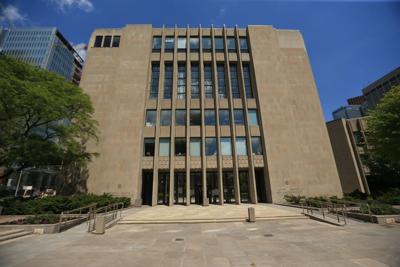Ottawa is appealing an Ontario Superior Court ruling that ordered the government to repay hundreds of millions of dollars to early-stage investors in former mobile carrier Mobilicity.
Justice Peter Osborne issued the decision in early August, following 11 years of litigation dating back to 2014. The case was brought against Industry Canada by Quadrangle Group and Obelysk Media, two original investors and founders of Mobilicity, a mobile carrier that was sold to Rogers in 2015.Â
The judge found the federal government liable for the torts of “negligence and negligent misrepresentation” because it changed the terms of Mobilicity’s mobile spectrum licences and intervened in the regulatory process to repeatedly frustrate the company’s proposed sale to Telus.
The attorney general of Canada filed a notice Friday afternoon seeking to overturn the ruling at the Ontario Court of Appeal and dismiss the damages Osborne awarded to Mobilicity’s shareholders — $411 million (U.S.) to Quadrangle and about $33 million (Cdn.) to Obelysk — subject to deductions for amounts already recovered and the addition of interest.
“The trial judge erred in making a single, cumulative assessment of whether Industry Canada owed the Respondents a duty of care,” the notice of appeal read, listing four pages of alleged errors by the judge.
The dispute can be traced back to 2006, when Industry Canada aimed to entice investors to acquire spectrum licences and launch new carriers to challenge the Big Three incumbents — Bell, Rogers and Telus.
Michael Binder, a senior federal official, approached şŁ˝ÇÉçÇřąŮÍřinvestor John Bitove, the operator of Obelysk Media, to encourage him to participate in the auction, according to the judge’s ruling. (John Bitove is the brother of Torstar owner and şŁ˝ÇÉçÇřąŮÍřStar publisher Jordan Bitove.)
In 2008, Quadrangle and Obelysk founded Mobilicity and acquired spectrum licences for more than $243 million, with the understanding from Industry Canada that the purchased licences could not be sold to incumbents for a five-year hold period, but could be freely transferred thereafter.
However, Industry Canada introduced a new transfer framework five years later, drawing a firm line to prevent entrenched incumbents from seizing spectrum intended for new entrants.
Osborne found that the new framework “completely vacated the promises and representations made” by Industry Canada and “the Government knew this.”
He rejected the federal attorney general’s arguments that Industry Canada had never made representations regarding transferability and could not be held legally responsible for exercising a “core policy.”
“While the scope of policy discretion is broad, it cannot be so broad as to render meaningless specific representations intentionally and expressly made by the Government to a very limited class” of investors, the court ruling read.
In its appeal, the attorney general of Canada argued that the judge made a legal error by concluding “that the adoption of the 2013 Transfer Framework was specifically intended to target Mobilicity.”
Mobilicity intended to sell its licences to Telus and applied for approval while it filed for creditor protection under the Companies’ Creditors Arrangement Act in 2014.
Osborne found that Industry Canada did not participate in “good faith” or address the proposed sale through proper court procedures, but instead orchestrated a media campaign aimed at “threatening and intimidating” Telus and other potential Mobilicity bidders with exclusion from future spectrum auctions if they pursued a bid to purchase the licences.
The government ultimately carved out an exception to its policy, allowing Rogers to acquire Mobilicity and its wireless licences for $465 million — $82 million less than Telus’s highest bid at the time.
Quadrangle and Obelysk were not immediately available for comment at press time.Â

























To join the conversation set a first and last name in your user profile.
Sign in or register for free to join the Conversation